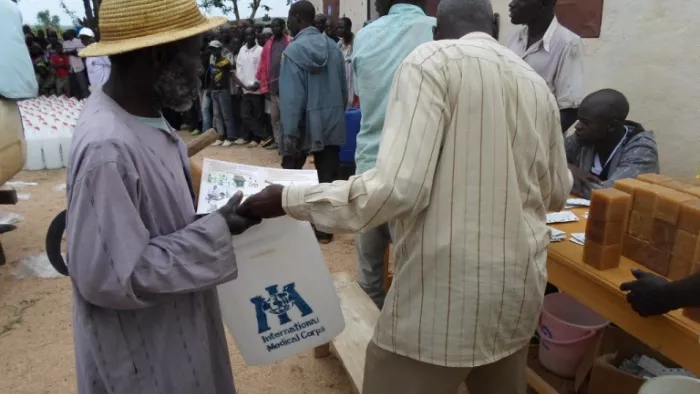
Central African Republic Refugees in Cameroon Response
Start Network coordinated a response involving three members and their partners to support thousands of refugees in Cameroon fleeing fighting in the Central African Republic.
Background
In early 2014 thousands of refugees fleeing fighting in the Central African Republic (CAR) arrived into Cameroon. Despite refugee numbers gradually increasing over the year, and the situation for refugees and host communities deteriorating, the crisis did not receive sufficient international attention and therefore resourcing. According to UNHCR a further 50,000 CAR refugees were estimated to have crossed into Cameroon during 2015, with just under 250,000 CAR refugees estimated to be residing in refugee camps and with host communities Cameroon by the end of 2015.
Many refugees have fled the fighting with very few belongings. Many will have travelled across many miles, and hazardous terrain, and with very little in the way of health care. Immediate needs such as food and water are a primary concern for most but once they reach Cameroon, shelter and livelihoods are also pressing needs. Families have become split up and host communities and authorities are struggling to cater for their own needs, let alone the needs of additional refugee populations.
Start Network's response
In close coordination with the authorities Start Network supported three members and their partners to lead projects in three different regions in Cameroon where refugees were residing – the North, East and Adamawa regions. The response focussed on providing refugees and vulnerable host communities with safe water and hygiene practices, supporting their primary health care, and assisting with their food security and income diversification.
The unique consortium arrangements of Start Network enabled funding to be disbursed quickly, and the collaborative approach enabled a larger response, across a number of sectors in a comprehensive and coordinated manner.
Objectives
There were four main objectives to this programme. Firstly to improve access for refugees and host communities to improved water, hygiene and sanitation practices. Secondly to provide nutritional and livelihood diversification opportunities. Thirdly to increase access to primary health care. Lastly to help reduce risks for vulnerable groups.
Agencies involved
The lead agencies were Action Against Hunger, Plan and International Medical Corps. Partners involved included CARE and the French Red Cross.
Member responded to the needs of refugees from the Central African Republic and host communities in Cameroon. This involved the rehabilitation and construction of water points alongside training of local engineers to maintain the facilities, construction of latrines and safe hygiene promotion. This also included distribution of food vouchers, training on improving agricultural productivity and provision of primary health care consultations.
The programme was funded by UK Aid. The grant was approximately £3 million.
For more information please contact startresponse@startnetwork.org.
